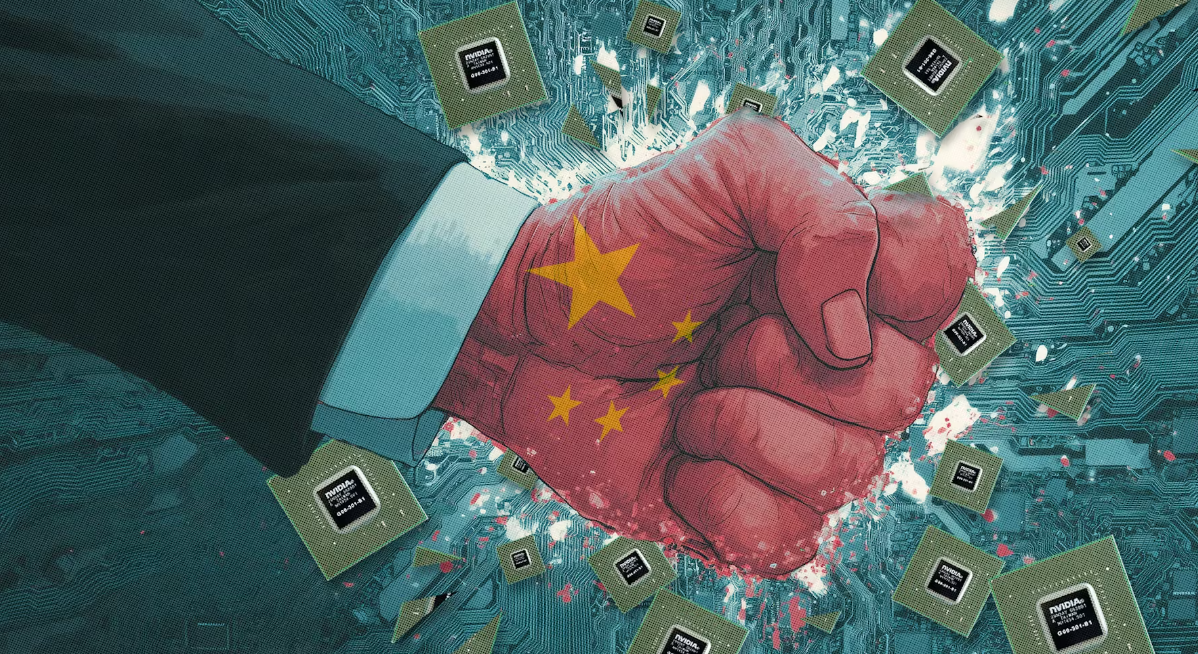China has intensified its crackdown on US semiconductor dependence, officially barring ByteDance from installing Nvidia chips in new data centres. The move, confirmed by multiple sources, reinforces China’s broader strategy to replace foreign AI hardware with homegrown alternatives.
According to The Information, Chinese regulators ordered ByteDance to stop deploying Nvidia’s AI processors—even those already purchased—for new data center projects. The directive follows earlier bans on Nvidia’s China-specific RTX Pro 6000D and H20 chips, marking a decisive step in Beijing’s plan to achieve chip independence.
Background: China’s Expanding Ban on Nvidia Chips
In mid-September, the Cyberspace Administration of China (CAC) instructed major tech firms such as ByteDance and Alibaba to halt all orders and testing of Nvidia’s China-designed RTX Pro 6000D chip. Many firms had already committed to tens of thousands of units, highlighting how abrupt the decision was.
Nvidia CEO Jensen Huang expressed disappointment, calling the ban “disheartening but understandable,” noting that “China and the United States have larger agendas to work out.” He later estimated that Nvidia has lost access to a $50 billion market opportunity in China this year due to escalating trade restrictions.
China’s Goal: Silicon Self-Sovereignty
Officials in Beijing have made clear that this is more than a trade retaliation. The ban fits within a long-term vision of “AI self-sovereignty”, aimed at tripling China’s domestic AI output by next year.
A senior tech executive was quoted saying, “Earlier, people had hopes of renewed Nvidia supply if geopolitics improved. Now it’s all hands on deck to build the domestic system.”
Union Bancaire Privée’s Vey-Sern Ling explained that China “prefers to develop AI on a domestic tech stack” rather than risk further dependence on foreign suppliers. Analysts see the ban as both a show of confidence in local chipmakers and a bargaining chip in trade negotiations with Washington.
Winners and Losers in the AI Hardware Race
Beijing’s restrictions have quickly reshaped the local AI ecosystem.
- Huawei Technologies unveiled what it called “the world’s most powerful supernode computing cluster,” built entirely with Chinese chips.
- Cambricon Technologies posted record profits of 1.04 billion yuan in the first half of 2025, reversing a prior loss, with revenue soaring 4,300 percent to 2.88 billion yuan.
- Goldman Sachs now projects Cambricon’s AI-chip shipments to surge from 143,000 units in 2025 to 2.1 million by 2030.
Still, experts caution that China cannot yet fully replace Nvidia. “It is misleading to suggest China can advance AI at the current level solely with domestic chips,” said Ray Wang of Futurum Group. Even Huawei’s Ren Zhengfei admitted the firm’s chips remain one generation behind the US and rely on mathematical and software optimizations to bridge the gap.
Global and Market Implications
The bans have immediate consequences for Nvidia’s global strategy. The company’s China revenue, once accounting for up to 25% of its data center sales, has effectively collapsed to zero. Huang warned that export controls could backfire, accelerating China’s innovation instead of curbing it.
The geopolitical undertone is equally clear. Analysts say the ban serves as both economic leverage and an assertion of technological independence, signaling that China no longer views reliance on US suppliers as tenable under Trump’s trade policy.
China’s latest restrictions against Nvidia mark a turning point in the global AI hardware race. The world’s second-largest economy is cutting ties with the world’s top AI chipmaker, while fast-tracking its domestic semiconductor ambitions. Nvidia, once holding 95% market share in China, now faces a near-total lockout—a shift with far-reaching implications for global AI supply chains and future trade negotiations.
Related: 5 Things to Watch in Markets This Week
Nvidia Earnings Takeaways: Time to Buy $NVDA?
Disclosure: This article does not represent investment advice. The content and materials featured on this page are for educational purposes only.










